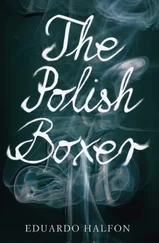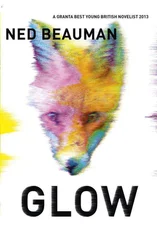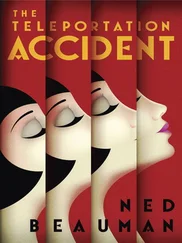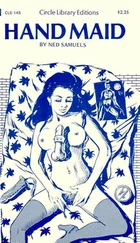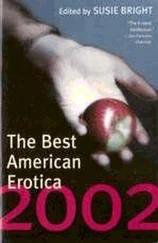Thurlow had continued to discourage his efforts. He kept bringing up Volapük, which was at that time the most popular artificial language in Europe, with two hundred thousand speakers, and which had just held its Third International Congress at a hotel in Paris, where even the waiters and porters had conversed only in the appropriate tongue. He pointed out that Volapük had been created by a German parish priest called Johann Martin Schleyer who was not only a talented poet and musician but who also had at least a basic familiarity with eighty-three languages — whereas Pangaean was being created by Erasmus Erskine, who hated poetry, hated music and knew only English, Latin, Greek and a little French. Erskine retorted that Schleyer was a Catholic. Thurlow also noted that Volapük, based largely on English, could be picked up in a few weeks — whereas Pangaean, which had thirty participatory valences, forty derivative conflations, fifty adjunctive modalities and sixty-nine consonantal mutations, was so complex that even Erskine himself could not pretend to be fluent. Erskine retorted that the language was not intended for sluggards. Over those eight years Pangaean was the cause of many arguments, and by the time Thurlow published his celebrated verse cycle Ischys and Coronis Erskine was so angry with his old friend that he refused even to have a copy in the house. This upset Lydia, who was very fond of Thurlow, one of their only friends in Hampshire; she demanded that the two men reconcile in order that the handsome Old Wykehamist could carry on coming to dinner.
But far worse than his old friend’s niggling was Erskine’s discovery that Marcus Amersham, of all people, was working on an artificial language too. Orba, as it was called, already had a social club devoted to it in Yorkshire, whose members were at work translating the Bible. At the back of every pamphlet on Orba, Amersham included eight promissory forms. They read: ‘I, the undersigned, promise to learn the international language proposed by Professor Amersham, if it appears that ten million people have publicly given the same promise.’ On the other side was space for name and address. When Amersham, who was not really a professor, had received 10 million promissory notes, he was going to publish a book with all the names and addresses of the signatories. Whenever Erskine felt especially frustrated about the popularity of Orba, which sounded to him like nothing more than hissing and oinking, he would sit down with his wife for three or four hours and try to teach her the basics of trans-relative participants or sequential iconicity, but although she seemed enthusiastic about the basic premise of an artificial language, her progress was very disappointing, and he began to wonder for the first time in their marriage if he’d chosen the right bride. He bitterly regretted that he had not developed Pangaean in time to bring up his son to speak it as his first language. The same firm that had printed Ultima Thule was now printing thousands of copies of the Reduced Pangaean Grammar and Lexicon to be given away in tobacconists.
But by 1901 Pangaean, Orba and Volapük were all being swept aside by the onrush of Esperanto. Esperanto was the creation of Ludvic Zamenhof, a Lithuanian Jewish ophthalmologist who lived in Bialystok and sometimes bought his vegetables from Sinner’s grandfather. One day, when Sinner’s grandfather found out who Zamenhof was, he asked him why he had invented a language. ‘Most of us are Jews who grew up in the ghetto,’ said Zamenhof, who had written a five-act tragedy about the Tower of Babel when he was only ten. ‘Russians and Poles and Germans and Jews, we all hate each other, but we must all live together. No one, I think, can feel the misery of barriers among people as strongly as a ghetto Jew. No one can feel the need for a language of no nationality as strongly as the Jew, who is obliged to pray to God in a language long dead, who is educated in the language of a people that spit on him, and who has fellow-sufferers throughout the world with whom he cannot even communicate.’ The speech was clearly well rehearsed, but it filled Sinner’s grandfather with excitement. He presumed that great London Jews like Lord Rothschild and Sir Moses Montefiore had all learnt Esperanto, and decided to learn it himself, but he never got round to it because he was working too hard to make ends meet. (At that time the Jews of Bialystok were obliged to pay taxes on the consumption of kosher meat and on the lighting of Sabbath candles. The lease on the tax was held by a Jew called Solomon Kofler, whose agents would come to your house and snuff out your candles if you could not show a receipt.) Meanwhile, when Erskine complained to Thurlow that a Jew should have the audacity to invent a language, Thurlow wrote to him with a quotation from a 1712 article by Joseph Addison in The Spectator : ‘They are, indeed, so disseminated through all the trading Parts of the world that they are become the Instruments by which the most distant Nations converse with one another, and by which Mankind are knit together in general Correspondence. They are like the Pegs and Nails in a great Building, which, though they are but little valued in themselves, are absolutely necessary to keep the whole Frame together.’ Erskine wrote back: ‘He is talking about languages, obviously, but I am not sure which ones “they” are. English and French, perhaps? I do not see what this has to do with Zamenhof.’ Thurlow wrote back: ‘He is not talking about languages. He is talking about Jews.’
The following year, Erskine discovered that a Delegation for the Adoption of an International Auxiliary Language would soon be meeting in Paris. He was determined that Pangaean should be considered, and so he embarked on the second edition of the Pangaean Grammar and Lexicon , addressing at least a few of the criticisms he’d heard from both its British enthusiasts and his devil’s advocate Thurlow. Half-convinced that Esperanto was a cosmopolitan conspiracy, he now decided that Pangaean ought to help purge its speakers’ moral sense as well as their rational sense. But he wasn’t so crude as to simply take words out, as some of his competitors did — that would only speed the language’s corruption by slang. Instead, he chained up the syncategoramata so that you could perfectly well still say things like ‘homosexual’ and ‘pacifist’ and ‘cuckold’, but a sort of great semantic inertia would push down on your tongue. And as Erskine thundered through his own creation, the Black Hundreds thundered through the Jewish districts of Bialystok. Most of them were drunk and so the Jews were able to mount a hasty self-defence, scattering the hooligans with chains and hammers and pistols, but both of Sinner’s aunts were raped, his grandfather lost an eye, and all their things were smashed. Sinner’s grandfather decided the city was even worse than the country and moved the family back to Fluek, where Sinner’s father would stay until he was twenty-two, saving money for a ticket to America.
In 1903 the Delegation met as planned to decide between Esperanto and Waldemar Rosenberger’s Idiom Neutral. (Pangaean and Orba were never really in the running.) The Delegation appointed a Committee. The Committee appointed a Commission. The Commission dissolved the Delegation and instead appointed a Union. The Union appointed a Committee and an Academy. The Academy appointed an Association. It was all done very logically, and yet so many in the international language movement did not recognise the authority of the Delegation, the Committee, the Commission, the Union, the other Committee, the Academy or the Association that they all gave up without a final report ever being issued, just as Moscow’s Committee on the Improvement of Jews had given up exactly a hundred years earlier after it could not decide whether rabbis, cantors, teachers, ritual slaughterers like Sinner’s great-great-grandfather, and other functionaries should fall into the category of useful Jews or useless Jews.
Читать дальше


